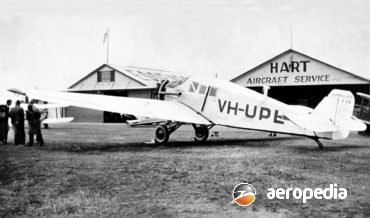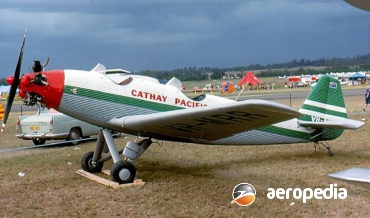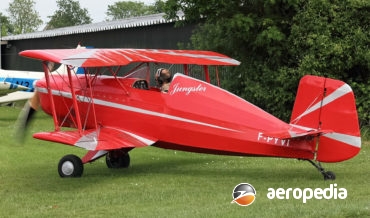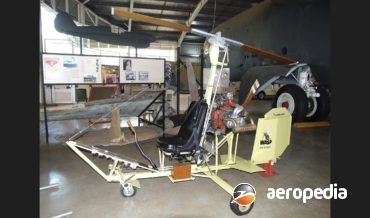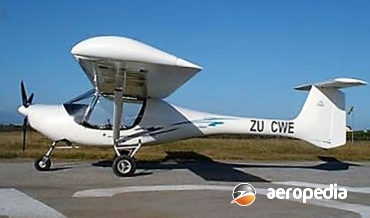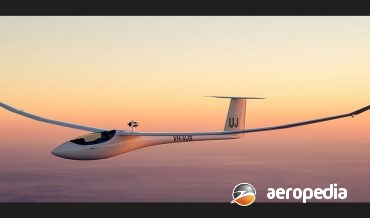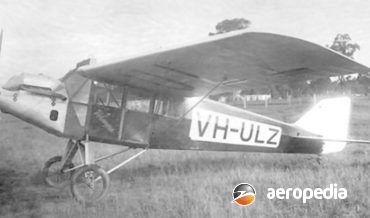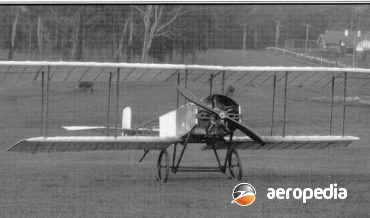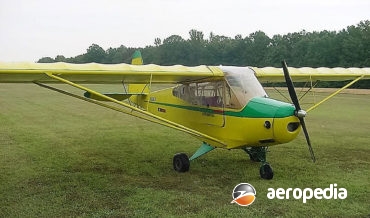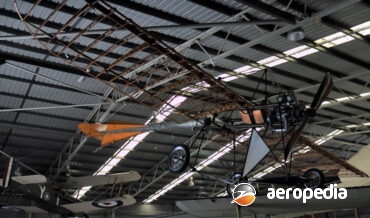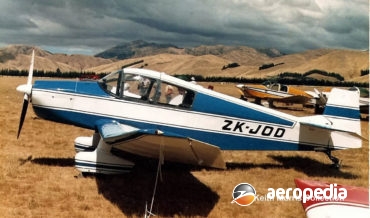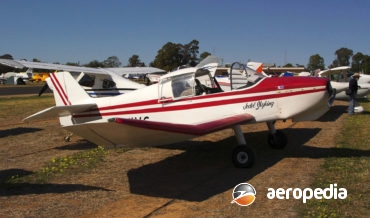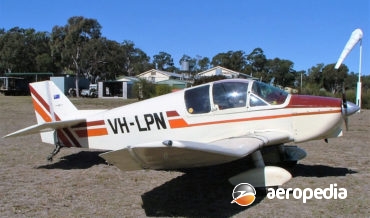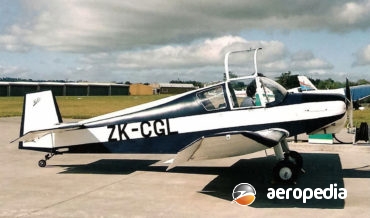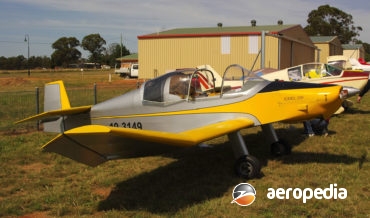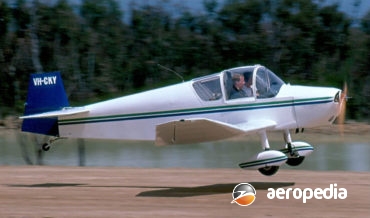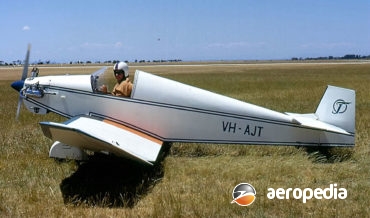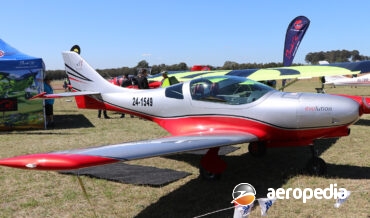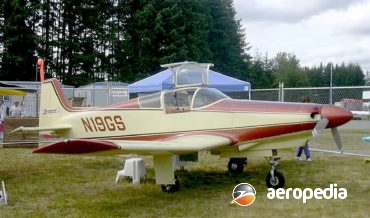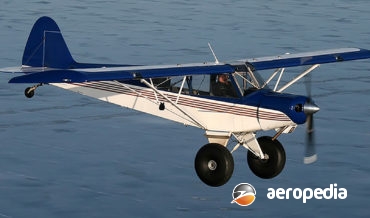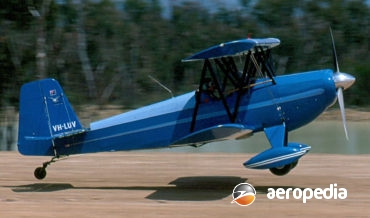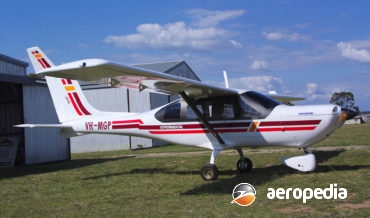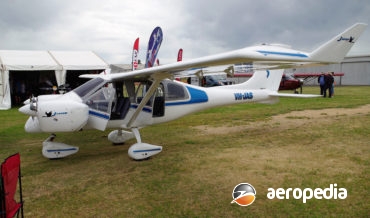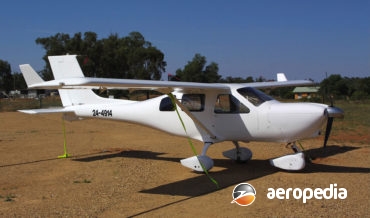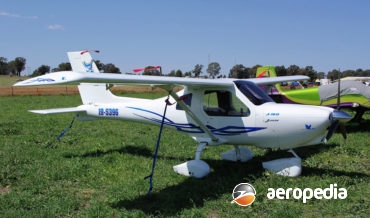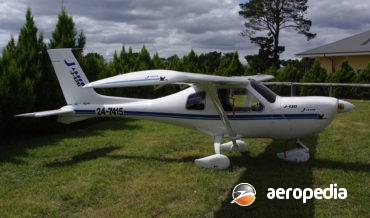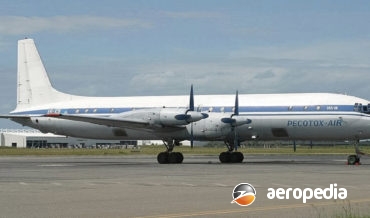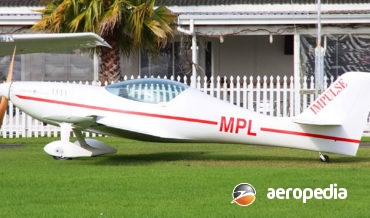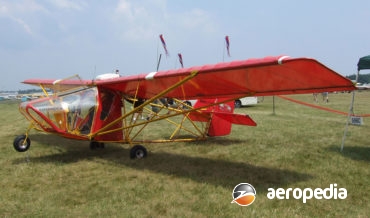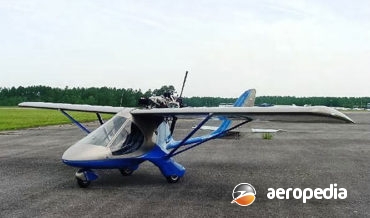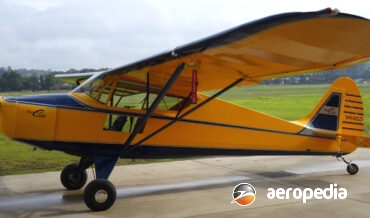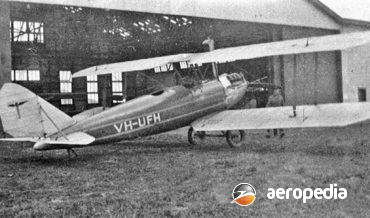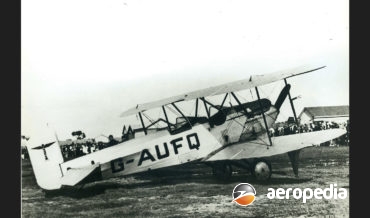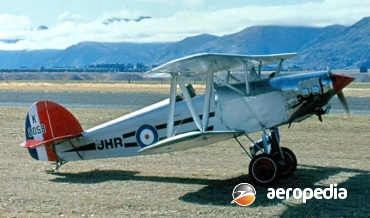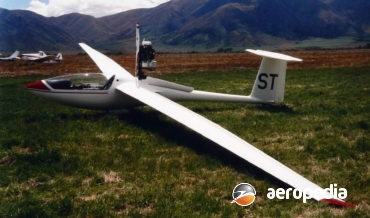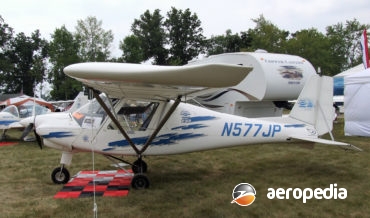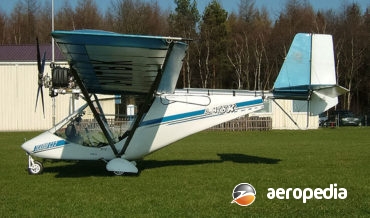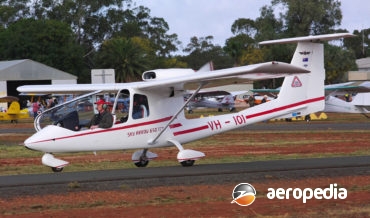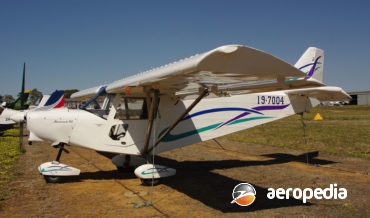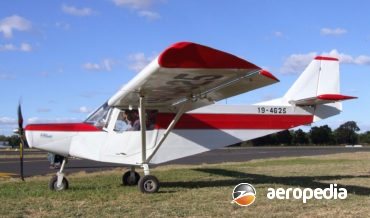All Contents
Contents
The F.13 was a development of a series of light transports designed by Professor Hugo Junkers, they all being all-metal monoplanes with corrugated skinning to provide strength.
David C. Eyre
- May 8, 2019
The prototype of the Junkers A-50 tandem two-seat, all-metal, light monoplane was flown for the first time in 1928.
David C. Eyre
- May 8, 2019
Designed by Rimn Isaminskas in Los Angeles, an aeronautical engineer, the Jungster series of light aircraft were simple, strong aircraft, the Jungster I being an aerobatic biplane. The design was based on the German wartime aerobatic training biplane, the Bucker Jungmeister. Designed in 1962 and built to 80% scale, the
David C. Eyre
- May 8, 2019
The McCandless M-4 Gyroplane was a British single-seater ultra-light autogyro first flown in 1961 and was initially powered by a Triumph motor-cycle engine, this later being replaced by a Norton motor-cycle engine but this was also found not to be suitable for installation in such a machine and was abandoned
David C. Eyre
- May 8, 2019
The Jora was a light aircraft produced in the Czech Republic produced by Jora SRO in Vraclav. Looking very similar to the Fantasy Air Cora, which made its public debut at the Fredrichshafen Air Show in Germany in May 1997, it becamepopular due to its low cost and good performance.
David C. Eyre
- May 8, 2019
The JS-3 Rapture is one of a series of high performance gliders built in South Africa by Jonker Sailplanes the first model being the JS-1, the prototype of which flew for the first time on 12 December 2006 and the company immediately became known as a builder of world-class sailplanes.
David C. Eyre
- May 8, 2019
Leslie John Robert Jones, in conjunction with Dr N P Boulton, in 1927 commenced the design and construction, and later testing
David C. Eyre
- May 8, 2019
In 1907 L J R (Leslie John Robert) Jones was born on 4 June 1886 at Bathurst
David C. Eyre
- May 8, 2019
Like many ultralight aircraft in recent times
David C. Eyre
- May 8, 2019
Photograph: Replica of the Johnson Brothers Monoplane at Caboolture, QLD after assembly in 2021 (Eleonore Eyre) Country of origin: United States of America Description: Single-seat monoplane Power Plant: One 48 kw (65 hp) Johnson four-cylinder two-cycle VEE engine Specifications: Wingspan: 10.97 m (36 ft) Length: 10.36 m (34 ft) Weight:
David C. Eyre
- May 8, 2019
Photograph: Jodel DR-1051 Sicile Record ZK-JOD (c/n 350) in June 1988 (Keith Morris –NZCIVAIR) Country of origin: France Description: Two-seat light sport monoplane Power Plant: One 78 kw (105 hp) Potez 4 E-20A four-cylinder air-cooled engine Specifications: Wingspan: 8.72 m (28 ft 7½ in) Length: 6.5 m (20 ft 10
David C. Eyre
- May 8, 2019
Photograph: Jodel DR-1050M Sky King VH-KVC (c/n V67) at Narromine, NSW in September 2012 (David C Eyre) Country of origin: France Description: Three-seat light touring monoplane Power Plant: One 75 kw (100 hp) Continental O-200A four-cylinder horizontally-opposed air-cooled engine Specifications: Wingspan: 8.72 m (28 ft 7½ in) Length: 6.35 m
David C. Eyre
- May 8, 2019
Photograph: Jodel D-150 Sky Prince VH-LPN (c/n N189) at Wedderburn, NSW in August 2005 (David C Eyre) Country of origin: France Description: Two-seat light sport monoplane Power Plant: One 78 kw (105 hp) Potez 4 E20 four-cylinder in-line air-cooled engine Specifications: Wingspan: 8.15 m (26 ft 9 in) Length: 6.3
David C. Eyre
- May 8, 2019
The D-112 Club series was developed from the D-11 Club series, embodying some major design refinement, in the late 1960s, being the most popular of the Jodel series of light touring and sporting monoplanes in France
David C. Eyre
- May 8, 2019
The D-18 Sovereign was derived from the Jodel D-11 series but it is smaller and lighter all round so that it may be fitted with smaller engines, ie in the 41-kw (55-hp) to 60-kw (80-hp) class.
David C. Eyre
- May 8, 2019
Designed as a two-seat development of the Jodel D-9, the D-11 became the basic model in a series of Jodel two-seat, light aircraft designs for amateur and commercial production.
David C. Eyre
- May 8, 2019
The Societe des Avions Jodel, formed in 1946, designed and built the single-seat Model D-9 Bebe light monoplane as a cheap, easy-to-build-and-fly aircraft for amateur constructors.
David C. Eyre
- May 8, 2019
The VL-3 Evolution was marketed by Jean-Marie and Jean-Baptiste Guisset who operated a training organisation in Belgium, they taking over the operation of the airfield in 1980.
David C. Eyre
- May 8, 2019
The Barracuda was designed by Geoffrey Siers, a former RAF pilot and design engineer with British Aerospace, who moved to the United States in 1964.
David C. Eyre
- May 8, 2019
The Super Cub is provided in kit form by Javron Aviation, a division of Javron Precision Machining of Brainerd, Minnesota.
David C. Eyre
- May 8, 2019
The Wichawk is a sporting biplane designed by the Javelin Aircraft Co of Wichita, Kansas, for the amateur builder.
David C. Eyre
- May 8, 2019
One of a range of light aircraft produced by Jabiru at its facility at Bundaberg, QLD, the J-430 series is larger than previous models and was designed to seat either two or four and operate as a touring aircraft for the buyer.
David C. Eyre
- May 8, 2019
In about 2012 Jabiru Aircraft of Bundaberg, QLD was looked at extending its range of aircraft and looked at building a helicopter and a twin-engine variant of the Jabiru light sporting aircraft.
David C. Eyre
- May 8, 2019
The Jabiru J230 series is the culmination of the series fitted with a six-cylinder Jabiru engine and aimed at the registered general aviation market.
David C. Eyre
- May 8, 2019
The J160 was designed to meet JAR-VLA European airworthiness standards by Jabiru Aircraft Pty Ltd of Bundaberg, QLD.
David C. Eyre
- May 8, 2019
The Jabiru J-120 is one of a range of light aircraft designed in Australia and built by Jabiru at its facility at Bundaberg in Queensland for the recreational aviation market in Australia.
David C. Eyre
- May 8, 2019
In 1955 the Soviet Council of Ministers directed engine builders Kuznetsov and Ivchenko to develop new turboprop engines, and Ilyushin and Antonov to design an airliner to use these engines.
David C. Eyre
- May 8, 2019
The Impulse is a high-performance German designed light aircraft aimed at the ultralight market but which may be completed to meet general aviation regulations.
David C. Eyre
- May 8, 2019
The T-Bird is a light aircraft aimed at the ultra-light market and is described as agile and stable. It has been manufactured in the United States by Indy Aircraft at Independence in Indiana and has been in production for over 25 years in various forms.
David C. Eyre
- May 8, 2019
The Skyboy two-seat light touring and training aircraft is available in kit form from Interplane SRO in Letiste Zbraslavice in the Czech Republic.
David C. Eyre
- May 8, 2019
The Interstate Cadet was a two-seat in tandem high-wing single-engine monoplane produced by the Interstate Aircraft & Engineering Corp based in El Segundo, California and during 1941 and 1942 a total of about 320 examples was produced, mainly for the US military.
David C. Eyre
- May 8, 2019
In 1925 Mr G S Ireland of Garden City, New York, a former salesman for Curtiss Aeroplane & Motor Co Inc, entered the field of light aircraft production.
David C. Eyre
- May 8, 2019
Photograph: Ireland Meteor G-AUFQ (c/n M.8) at Mascot, NSW in 1928 (Frank Walters collection) Country of origin: United States of America Description: Four-seat touring biplane Power Plant: One 67 kw (90 hp) Curtiss OX-5 eight-cylinder VEE liquid -cooled engine Specifications: Wingspan: 9.44 m (31 ft) Length: 7.31 m (24 ft)
David C. Eyre
- May 8, 2019
In 1961 John O Isaacs of Southampton in the United Kingdom commenced the design of a seven-tenths scale wooden replica of one of Britain’s most famous biplane fighters, the Hawker Fury, which saw service with the RAF in the 1930s.
David C. Eyre
- May 8, 2019
The Pik-30 is a French built self-launched glider designed by Messrs Pekka Tammi and M Moniot. It is a single-seater and the wings and tail surfaces are of GFRP sandwich with a PVC core; and the fuselage structure is of GFRP monocoque structure reinforced with carbon fibre.
David C. Eyre
- May 8, 2019
The C42 is produced by Comco Ikarus GmbH at Hohentengen in Germany as a two-seat light sporting aircraft for the ultra light market, and is available as a complete aircraft or in kit form.
David C. Eyre
- May 8, 2019
The Ikarus C22 Fox ultra-light was designed by Hans Gigax in 1982 and was first imported to this region from Switzerland in early 1985 by the Australian distributor at Bondi, NSW, the first order being for ten aircraft.
David C. Eyre
- May 8, 2019
The Sky Arrow is produced in a number of models by Iniziative Industriali Italiane SpA in Italy as a light two in-tandem sport and training aircraft, the first flight of the prototype being made in March 1993.
David C. Eyre
- May 8, 2019
The Savannah is a light touring monoplane produced in kit form by I.C.P srl at Piova Massaia in Italy
David C. Eyre
- May 8, 2019
The Bingo is one of a series of light sporting aircraft produced in kit form for the amateur constructor by ICP of Piova Massaia in Italy.
David C. Eyre
- May 8, 2019
Recent Comments
Archives
Categories
- No categories
Categories
- No categories
Latest Posts
Newsletter

